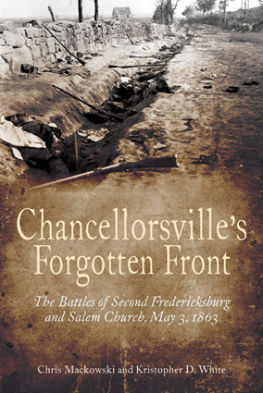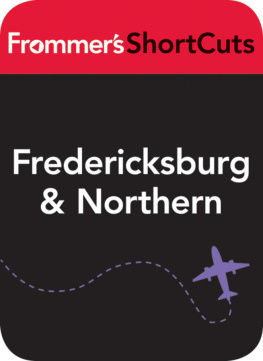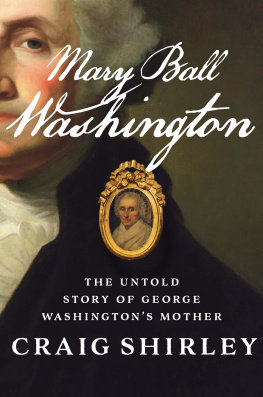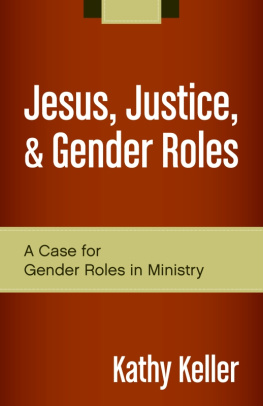George C. Rable - Fredericksburg! Fredericksburg!
Here you can read online George C. Rable - Fredericksburg! Fredericksburg! full text of the book (entire story) in english for free. Download pdf and epub, get meaning, cover and reviews about this ebook. year: 2002, publisher: The University of North Carolina Press, genre: Politics. Description of the work, (preface) as well as reviews are available. Best literature library LitArk.com created for fans of good reading and offers a wide selection of genres:
Romance novel
Science fiction
Adventure
Detective
Science
History
Home and family
Prose
Art
Politics
Computer
Non-fiction
Religion
Business
Children
Humor
Choose a favorite category and find really read worthwhile books. Enjoy immersion in the world of imagination, feel the emotions of the characters or learn something new for yourself, make an fascinating discovery.

- Book:Fredericksburg! Fredericksburg!
- Author:
- Publisher:The University of North Carolina Press
- Genre:
- Year:2002
- Rating:5 / 5
- Favourites:Add to favourites
- Your mark:
- 100
- 1
- 2
- 3
- 4
- 5
Fredericksburg! Fredericksburg!: summary, description and annotation
We offer to read an annotation, description, summary or preface (depends on what the author of the book "Fredericksburg! Fredericksburg!" wrote himself). If you haven't found the necessary information about the book — write in the comments, we will try to find it.
Fredericksburg! Fredericksburg! — read online for free the complete book (whole text) full work
Below is the text of the book, divided by pages. System saving the place of the last page read, allows you to conveniently read the book "Fredericksburg! Fredericksburg!" online for free, without having to search again every time where you left off. Put a bookmark, and you can go to the page where you finished reading at any time.
Font size:
Interval:
Bookmark:
Fredericksburg! Fredericksburg!
CIVIL WAR AMERICA
Gary W. Gallagher, editor
2002
The University of North Carolina Press
All rights reserved
Manufactured in the United States of America
Designed by Richard Hendel
Set in Charter and Champion types
by Tseng Information Systems, Inc.
The paper in this book meets the guidelines for permanence and durability of the Committee on Production Guidelines for Book Longevity of the Council on Library Resources.
Library of Congress Cataloging-in-Publication Data
Rable, George C.
Fredericksburg! Fredericksburg! / by George C. Rable.
p. cm. (Civil War America)
Includes bibliographical references and index.
ISBN 0-8078-2673-1 (cloth : alk. paper)
1. Fredericksburg (Va.), Battle of, 1862. I. Title. II. Series.
E474.85.R24 2002
973.733dc21 2001027915
06 05 04 03 02 5 4 3 2 1
For, as always,
Kay, Anne, and Katie,
and with deep gratitude
for colleagues at
Anderson University (19791998)
and the
University of Alabama (1998 )
Fredericksburg battlefield, dawn, December 13
Theater of operations
March to Fredericksburg
The armies on December 10
Meades attack and breakthrough, December 13, noon1:00 P.M.
The Confederates stop Meades and Gibbons attacks, December 13, 1:002:00 P.M.
Frenchs and Hancocks assaults against the Confederate left, December 13, noon1:00 P.M.
Howard, Sturgis, and Griffin support the attacks on the Confederate left, December 13, 2:003:00 P.M.
Confederate counterattack against the Federal left begins, December 13, 2:003:00 P.M.
President Abraham Lincoln and Maj. Gen. George B. McClellan meet after Antietam
Gen. Robert E. Lee
Lt. Gen. James Longstreet
Lt. Gen. Thomas J. Jackson
Maj. Gen. Ambrose E. Burnside
Burnside profile, American Phrenological Journal, March 1862
Maj. Gen. Henry W. Halleck
Maj. Gen. Edwin V. Sumner
Maj. Gen. William B. Franklin
Maj. Gen. Joseph Hooker
Aquia Creek and Fredericksburg Railroad, construction crew at work
Aquia Creek Landing, Virginia, wharf, boat, and supplies
Confederate president Jefferson Davis
Fredericksburg, Virginia, from the east bank of the Rappahannock River
Thanksgiving in Camp
Fredericksburg, Virginia, showing destroyed railroad bridge and Confederate troops
Alfred Waud, 50th [N.Y.] Engineers Building Pontoon Bridge at Fredericksburg
Destruction in Fredericksburg
David English Henderson, Departure from Fredericksburg before the Bombardment
Stone wall at the base of Maryes Heights
Secretary of State William H. Seward
Christmas Eve
Alfred Waud, The Mud March
David English Henderson, The Return to Fredericksburg after the Battle
Any project that began so many years agoin 1992, to be preciseis bound to accumulate a host of debts. It is not surprising that my first research stop was the Fredericksburg and Spotsylvania National Military Park, where Robert K. Krick has assembled a superb collection and equally valuable staff. The red and blue bound volumes in one corner of Bobs office contain copies of innumerable documents related to the important battles fought in the area and much more. Bob is unfailingly generous in making these treasures available to researchers, and as an extra bonus, visitors standing at the copy machine receive a steady stream of acerbic Krickian observations on all manner of things. Donald Pfanz also shared his encyclopedic knowledge of the collections, encouraged me to look at unprocessed documents in his office, and conducted an invaluable tour of the Maryes Heights area, including a successful search for the railroad cut where so many Federals faced, as they would have said, galling Confederate fire. Once my writing was under way, Donald kindly agreed to read the battle-related chapters and made many useful suggestions. Noel Harrison enthusiastically shared his wonderfully detailed knowledge of the local area and sites. Frank OReilly conducted an excellent tour of the area occupied by the Federal left and Confederate right that he so expertly treated in the best tactical study available on any phase of the campaign.
At the United States Army Military History Institute, Richard Sommers kept hauling out manuscript boxes and patiently worked with this neophyte military historian. A Mellon Fellowship from the Virginia Historical Society allowed for a very productive week of research in Richmond, where Nelson Lankford, Frances Pollard, and Graham Dozier made working with their collections easy and pleasant. As usual, the staffs in Special Collections at Duke University and the Southern Historical Collection at the University of North Carolina provided outstanding service. I also received excellent assistance at the William L. Clements and Bentley Historical Libraries at the University of Michigan. At the Library of Congress the staff efficiently answered questions and kept the manuscripts coming, despite being flooded with historians in town for a professional meeting. All across the country, archivists and librarians proved almost unfailingly helpful in responding to requests for information and photocopies.
Eric Walther proved to be a boon companion on a research trip to North Carolina, where he almost always chose good restaurants. At Anderson University two student secretaries, Kim Baker and Lori Miller, helped compile information on regimental casualties. As always, my great friend and former department chair at Anderson, J. Douglas Nelson, took a great interest in this project and in me. Doug knows very little about Civil War history, but this did not prevent him from commenting on this book or sending a few gentle barbs in my direction. I suppose the infamous Lunch Bunch at Anderson University deserve some acknowledgment for their fellowship and good cheer, but they areboth present and former membersa strange group of human beings. Nancy Leonard, Robert Kenzer, and Guy Hubbs kindly supplied some helpful research materials. A good friend, Phil Lambooy, provided much encouragement over the years as well as some valuable citations on religious materials. Three old LSU buddies, Marius Carriere, Chip Dawson, and Frank Wetta, asked some stimulating and often irreverent questions as we gathered each year for the Southern Historical Association annual meeting. Daniel Sutherland generously shared notes and photocopies from his own research on the Fredericksburg campaign. As is his wont, T. Michael Parrish kept my mailbox filled with fugitive sources and citations that I would never have found without his sharp eye and warm interest. Gretchen Schneider and her staff at the East Central Indiana Library Services Administration cheerfully and efficiently handled numerous interlibrary loan requests. William Marvela fine historian and generous friendshared much Burnside material and answered many questions about the campaign. Bill will not entirely agree with my interpretation of Burnside, but his efforts have shaped my thinking on the entire project.
Financial support from the Falls Faculty Development Fund at Anderson University and the Summersell Fund in Southern History at the University of Alabama helped defray travel and photocopying expenses.
Several talented people provided useful readings. Carol Reardon carefully critiqued the prologue. Three friends and colleagues at the University of Alabama lent their expertise to the project. Forrest McDonald offered some shrewd and invaluable advice on the Freedom chapter and introduced me to the Bowers Park tennis crowd. Howard Jones read the diplomatic history sections and always took a great interest in the project. Lawrence F. Kohl set me straight on the Irish Brigade and shared many insights on the Civil War in general. Lectures at Ohio State University and Pennsylvania State University provided early opportunities to test ideas about developing a new kind of campaign study. A shortened version of the chapter on the sack of Fredericksburg appeared in
Font size:
Interval:
Bookmark:
Similar books «Fredericksburg! Fredericksburg!»
Look at similar books to Fredericksburg! Fredericksburg!. We have selected literature similar in name and meaning in the hope of providing readers with more options to find new, interesting, not yet read works.
Discussion, reviews of the book Fredericksburg! Fredericksburg! and just readers' own opinions. Leave your comments, write what you think about the work, its meaning or the main characters. Specify what exactly you liked and what you didn't like, and why you think so.




